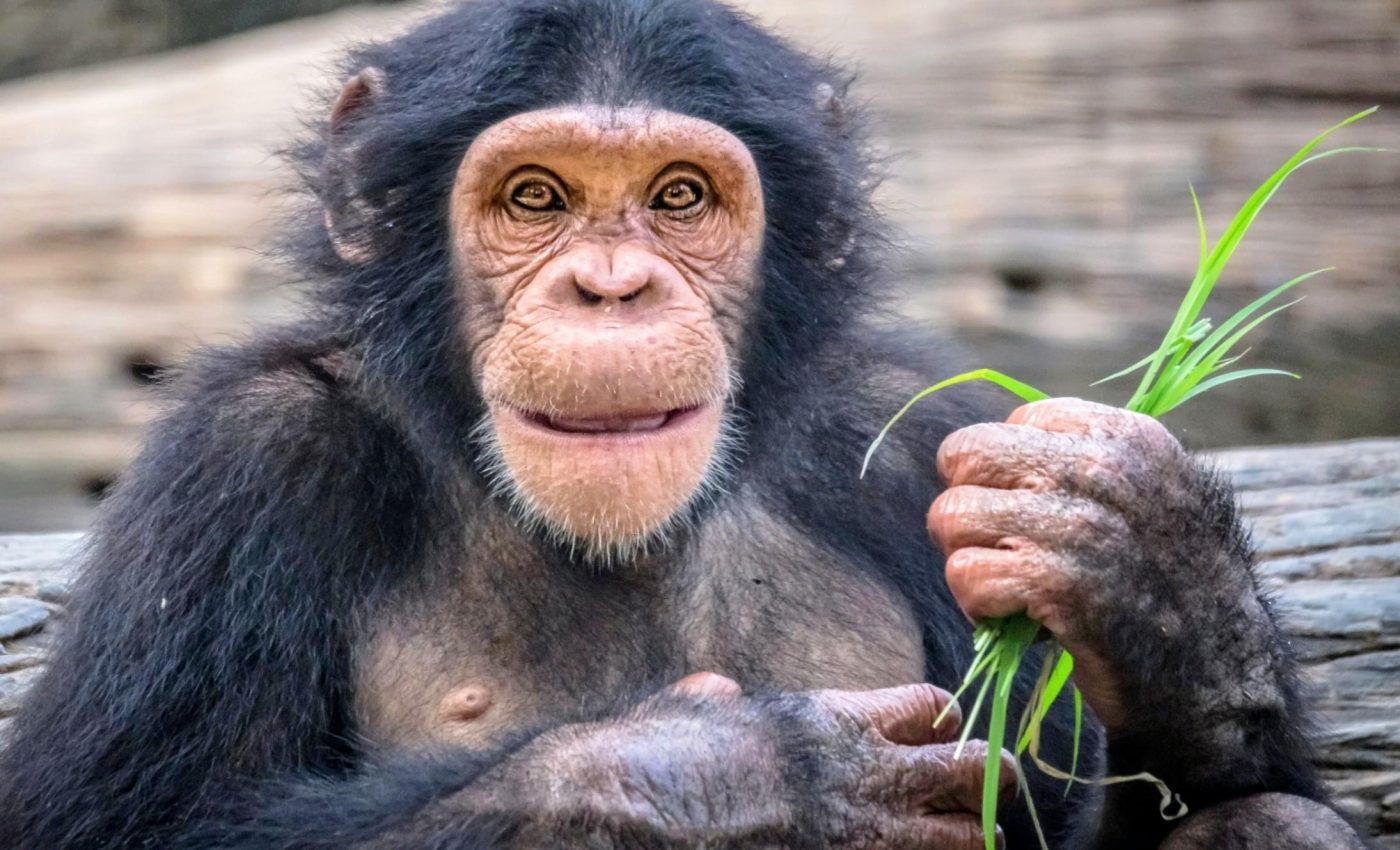
Chimps can reason and rethink their choices, just like humans
Humans like to believe that we hold a special place in evolution because we can reason. We weigh evidence, change our minds, and call it intelligence.
But a new study published in the journal Science reveals that chimpanzees do something strikingly similar. When faced with new facts, they rethink their beliefs.
Researchers from UC Berkeley and Utrecht University conducted the study at Uganda’s Ngamba Island Chimpanzee Sanctuary.
The research shows that chimps don’t just act on instinct. They pause, reflect, and revise their choices when stronger evidence appears.
When chimps change their minds
In the experiment, chimps faced two boxes. One had food, and the other didn’t. The animals first received a clue pointing to one box, then a new signal favoring the other.
Many of the chimps switched their choice. That simple act – reversing a decision after rethinking the evidence – hinted at something deep.
“Chimpanzees were able to revise their beliefs when better evidence became available,” said Emily Sanford from UC Berkeley. “This kind of flexible reasoning is something we often associate with four-year-old children. It was exciting to show that chimps can do this too.”
The findings matched formal models of rational thinking. Chimps didn’t change their choice randomly. They did so only when the new evidence outweighed the old. That pattern followed the same logic humans use when updating beliefs.
Reasoning over reaction
To make sure this wasn’t simple guessing, the researchers ran computational tests. The results ruled out easy explanations such as habit or bias.
Chimps didn’t just follow the latest clue. They compared information and made choices that lined up with rational thought.
The study also showed that the order of information didn’t matter. Whether chimps saw strong clues first or last, their final decisions relied on total evidence, not timing. That level of consistency points to reasoning, not reflex.
Weighing clues like humans
The team pushed the experiment further. What happens when evidence disappears?
When the strongest clue was removed, the chimps still relied on the weaker one. That meant they could keep two ideas in mind and weigh them even after one was gone.
The researchers also noticed something subtle: when new evidence came from a fresh source, chimps gave it more value. When it repeated an old clue, they ignored it.
This ability to tell “new” from “old” information suggests genuine tracking of evidence, not blind reaction.
Chimps question what’s real
Then came the most fascinating test. Chimps saw what looked like food through a glass window. Later, that “food” turned out to be a picture.
When that happened, the earlier evidence lost strength – and chimps changed their choice. They didn’t react to the picture itself but to what it meant: the first clue had become unreliable.
“The difference between humans and chimpanzees isn’t a categorical leap. It’s more like a continuum,” Sanford said. Her words sum up the essence of the study. Chimps can think about what they know and how they know it.
Evidence reshapes belief
This type of reasoning goes beyond simple cause and effect. It shows metacognition – awareness of one’s own thinking.
The chimps’ behavior followed Bayesian reasoning, a method where beliefs shift only when stronger evidence emerges. Such decisions suggest reflection, not mere learning.
Chimpanzees seem capable of what scientists call “source monitoring.” They remember not just the evidence but its origin, and can tell when a belief needs revising. This is the same foundation humans use to test reality against assumptions.
Beyond human reasoning
The implications stretch far. If chimps can reflect and reason, intelligence looks less like a human monopoly. Sanford believes this insight could change how we approach education and artificial intelligence.
“This research can help us think differently about how we approach early education or how we model reasoning in AI systems,” she said. “We shouldn’t assume children are blank slates when they walk into a classroom.”
The team’s next project will test toddlers using similar experiments. The idea is to see how both species – young children and chimps – revise beliefs when presented with new facts.
Reasoning links humans and apes
Sanford hopes to extend the work to other primates. Each new species may reveal another piece of how reasoning evolved. Her earlier studies on empathy in dogs and number sense in children point toward one conclusion: intelligence comes in many forms.
“They may not know what science is, but they’re navigating complex environments with intelligent and adaptive strategies,” she said. “And that’s something worth paying attention to.”
This study doesn’t just rewrite what we know about apes. It forces us to see human reasoning as part of a wider, older pattern – one that began long before we learned to name it.
The study is published in the journal Science.
—–
Like what you read? Subscribe to our newsletter for engaging articles, exclusive content, and the latest updates.
Check us out on EarthSnap, a free app brought to you by Eric Ralls and Earth.com.
—–













